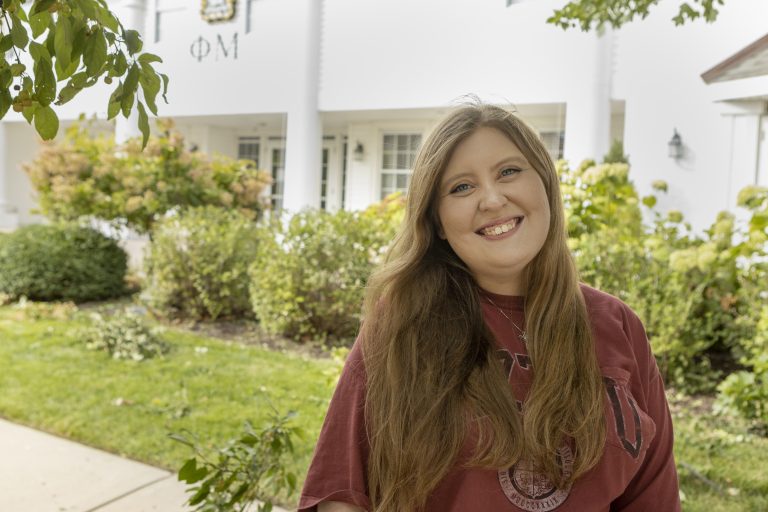Breaking down barriers

By Jesse Berlin
Senior Alexis Stockwell recently gave a visitor a tour of the sidewalks in Greek Town. The concrete was uneven and crumbling in places. At another point, a large, black pickup truck was parked on the sidewalk, making progress impossible for wheelchair users.
“They have to use these sidewalks to get to their living spaces,” Stockwell said. “If the sidewalks are a barrier, how can we even expect to have [students with disabilities] join our organizations?”
Stockwell is chair of the Panhellenic Association (PHA) Accessibility Committee, which helps lead efforts to make sorority life more inclusive by increasing accessibility for students with disabilities.
Consisting of 18 liaisons from 13 chapters, the committee meets biweekly to promote accessibility within the 15 PHA-member sororities at MU.
“We are making people see that accessibility matters,” Stockwell said. “It’s not something that you can just ignore.”
One of the liaisons is junior Olivia Holler, who represents Phi Mu. Holler uses a wheelchair and says disability advocacy was “near and dear to my heart.”
“When I first came to the house,” Holler said, “I wasn’t able to open the doors myself.” So, she asked for automated doors that would open at the push of a button.
Among the committees’ responsibilities is making sure chapter houses are accessible. Accommodations include wheelchair accessible spaces and entrances.
“Several of the houses have made several changes, including elevators and other inclusive or accessibility features,” Holler said. “I think that’s great.”
During formal recruitments, some houses had low sensory rooms, spaces for people to go if they feel overwhelmed.
“Mental health is also a super important part of disability advocacy,” Stockwell said. “It’s important to me that people are seeing disability as the wide spectrum that it is.”
Because digital accessibility is important – “So much of our college experience is digital,” Stockwell said. – hosts of virtual meetings are encouraged to enable closed captions. Images on chapters’ social media pages can have alt text describing what is in the images, so people who use screen readers can engage with the content.
Then there are the sidewalks. Stockwell is in dialogue with the city council and is asking them to fix broken sidewalks, install curb cuts and put sidewalks in place where there currently are none.
“They’re so uneven,” Holler said. “That is one thing that I’m pretty passionate about because I know I struggle going around campus.”
“Disability is also part of diversity,” Stockwell said. “We as a community want to be equitable to all people, and I think being accessible is just one of those ways that we can do that.”
Stockwell laid out a plan that involved city staff creating a timeline for repair by the end of 2021, with repairs completed by the end of 2022.
Stockwell has invited Interim Director of Public Works Shane Creech, City Manager John Glascock and other city staff to inspect Greektown sidewalks so they can start to estimate repair costs.
Stockwell said she was pleased with the city’s cooperation and the support from Greek chapters.
“I just can see how much all of these people care about the disabled community,” Stockwell said. “I think we can see some real action happen very soon.”
Related stories